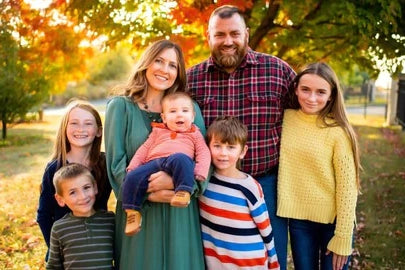
Becker Farms
Mooreland, IN
Becker Farms was established Fall of 2007 after Kyle and Emily Becker purchased a 100 acre farm in Mooreland, Indiana.
Their initial focus was freezer beef and since that time, they have diversified their farm offerings to include pork, chicken, turkey, eggs, and milk. They sell their products direct-to-consumer at farmers markets and through a CSA program, as well as to restaurants in East-Central Indiana.
Kyle Becker was raised on a dairy-beef-and-grain farm, and has a B.S. in animal science and Doctor of Veterinary Medicine (DVM) from Purdue University. He works as a food animal veterinarian for Becker Food Animal Health Services. Emily Becker grew up in Kokomo, without an agricultural background, but has learned a lot about this important, ever-changing field since enrolling in the College of Agriculture at Purdue University where she earned a B.S. in food science. Emily continued her education with a Master of Public Health (MPH) degree from Indiana University.
Farm Hounds is excited to partner with Becker Farms and help support their regenerative agriculture dream and help them use more of each animal!
To learn more about Becker Farms, visit their website.
